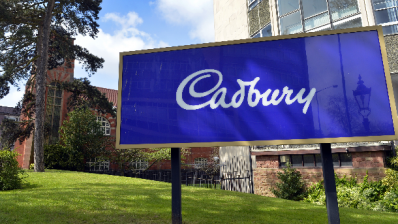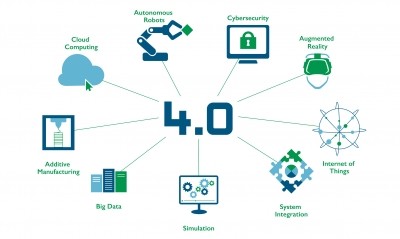Cyber-attack halts production at Cadbury factory

IT systems at Cadbury’s factory in Hobart went down just after 9:30 yesterday (June 27), according to the Australian Manufacturing Workers’ Union Tasmanian secretary John Short.
A statement on Mondelēz’s website confirmed that the company had experienced a global IT outage, but did not mention any involvement from hackers. It was working to contain any further exposure to its network.
A spokesman said: “Our teams are working offline in an effort to maintain business continuity with our customers and consumers around the world. We will share updates with our suppliers and partners as they become available.
“At this time, we do not know when our systems will be restored but we appreciate everyone’s patience, understanding and partnership during this process.”
Computers infected with the virus display a message demanding a payment of $300 (£233) in the virtual currency Bitcoin in order to gain access to the machine.
Message demanding a payment of $300
Twitter user Leon Compton posted an image of one of the infected computers at Cadbury’s Hobart site (see below).
Ransomware attack comes to Tasmania. This is what Cadbury's Hobart computers look like since 9:30pm #ransomwarepic.twitter.com/tZIC16oQNH
— Leon Compton (@LeonCompton) June 27, 2017
Rekkitt Benkiser (RB), owner of the French’s brand of sauces and condiments, confirmed it had also been affected by the cyber-attack.
“RB can confirm that today [June 27] it has been the subject of a cyber-attack which appears to be part of a global ransomware virus attack affecting many companies and organisations,” said a spokesman.
“We are working to contain the virus and recover our systems so as to be able to restore normal operations as soon as possible.”
Part of confectionery manufacturer Mars’s pet food business was also targeted in the latest cyber-attack.
A spokesman for the company said: “Parts of our Royal Canin business were targeted, which caused a computer outage. We isolated the issue quickly and we are working to restore services.
Latest wave of ransomware attacks
A number of businesses across the world have been affected by the latest wave of ransomware attacks, caused by the malware dubbed Petya.
Petya has caused disruption to Russian steel and oil firms Evraz and Rosneft, advertising firm WPP and shut down the radiation monitoring systems at the Chernobyl nuclear power plant.
It follows the WannaCry ransomware attack that crippled computer systems across the globe last month, including those of the UK’s National Health Service.
Speaking after the WannaCry attacks, cyber security firm ProofPoint warned that similar attacks could hit food companies and there were more advanced viruses that could damage manufacturers.
ProofPoint’s vice-president of products said: “Food manufacturers are not unique. They are susceptible to the same threats as anyone else.
Meanwhile, last month’s global cyber-attacks should act as a wake-up call for food and drink manufacturers to take internet security seriously, warn industry representatives.
What is ransomware?
Ransomware is a type of malware (malicious software) that prevents or limits users from accessing their computer systems, either by locking the display screen or by locking the users’ files unless a ransom is paid.
More modern ransomware families, collectively categorised as crypto-ransomware, encrypt certain file types on infected systems and force users to pay the ransom through certain online payment methods to get a decrypt key.
Source: Trendmicro.com
















